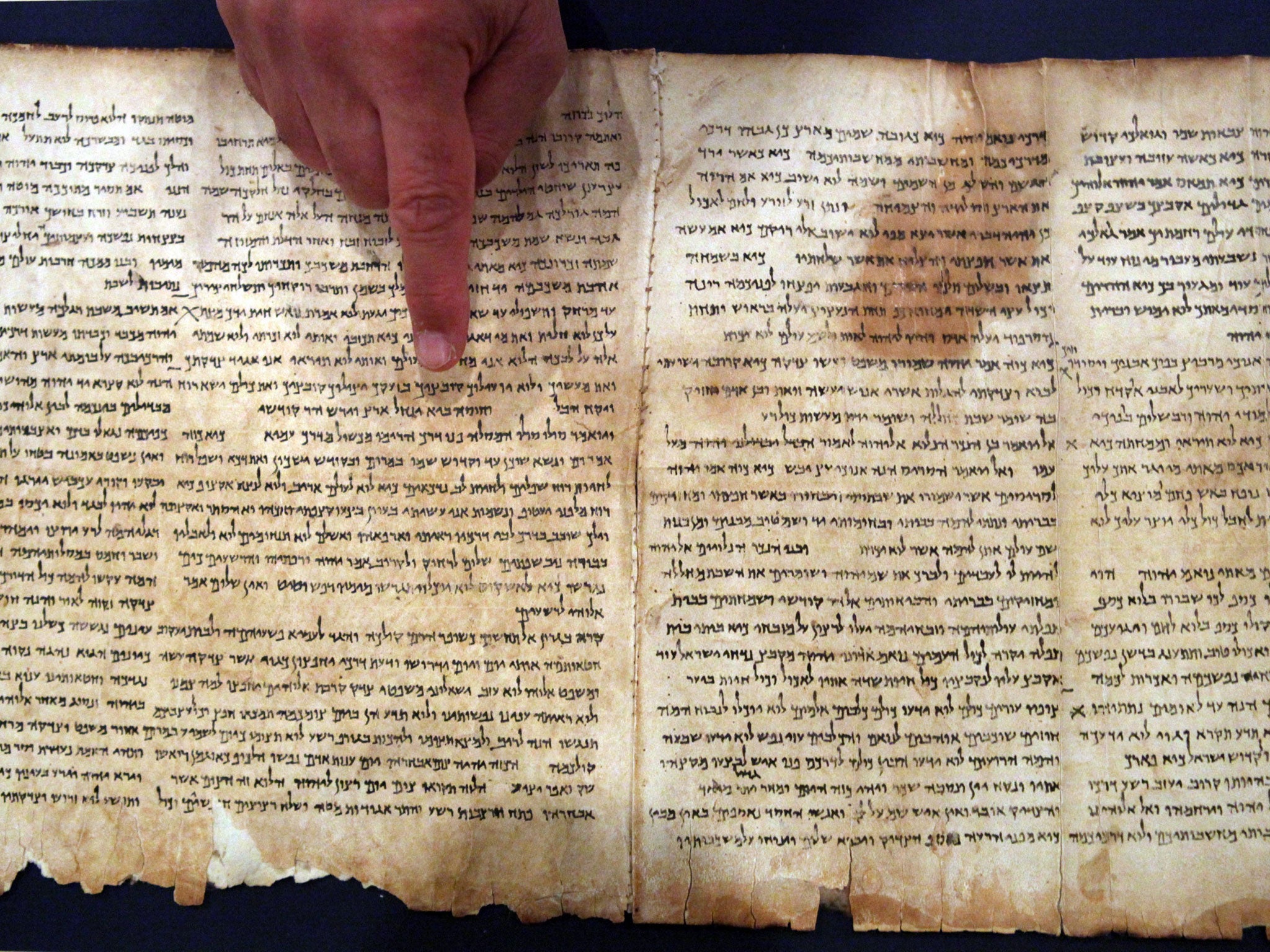Dead Sea scrolls: world's oldest copy of the Ten Commandments to go on display in Israel
2,000-year-old scroll will remain at the Israel Museum in Jerusalem for two weeks

Your support helps us to tell the story
From reproductive rights to climate change to Big Tech, The Independent is on the ground when the story is developing. Whether it's investigating the financials of Elon Musk's pro-Trump PAC or producing our latest documentary, 'The A Word', which shines a light on the American women fighting for reproductive rights, we know how important it is to parse out the facts from the messaging.
At such a critical moment in US history, we need reporters on the ground. Your donation allows us to keep sending journalists to speak to both sides of the story.
The Independent is trusted by Americans across the entire political spectrum. And unlike many other quality news outlets, we choose not to lock Americans out of our reporting and analysis with paywalls. We believe quality journalism should be available to everyone, paid for by those who can afford it.
Your support makes all the difference.The world's oldest complete copy of the Ten Commandments is to go on display for the first time in Jerusalem.
The document, which forms part of a collection of ancient biblical manuscripts, has previously only appeared overseas.
Pnina Shor of the Israel Antiquities Authority said that the 2,000-year-old scroll, which was discovered near the Dead Sea, east of Jerusalem, is usually kept in a pitch-black storage facility designed to protect it from the climate.
It is so brittle that it can only be displayed for a fortnight before it is returned.
Nine new Dead Sea Scrolls discovered in Israel
Geza Vermes: Translator of the Dead Sea Scrolls
The Dead Sea Scrolls: A Biography By John J Collins
It will be on display to the public at the Israel Museum as part of an exhibition of 14 ancient objects, entitled 'A Brief History of Humankind'.
These include an original handwritten manuscript of Einstein’s theory of relativity, tools used to hunt elephants 1.5m years ago, remains of a communal bonfire from 800,000 years ago, skulls from the oldest known family burial and a 9,000-year-old sickle.
The curators have also selected a 5,000-year-old Mesopotamian tablet and 2,700-year-old coins.
Museum director James Snyder told The Guardian that the exhibit would be celebrating the museum's 50th anniversary.
“After only 50 years, we may be one of only a very few museums worldwide that can tell such a broad story from its own holdings,” he said.
Join our commenting forum
Join thought-provoking conversations, follow other Independent readers and see their replies
Comments